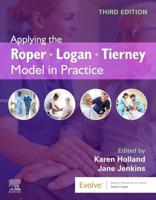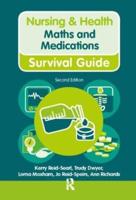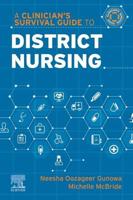Publisher's Synopsis
Nursing Fundamentals: VN Pre-Requisites Anatomy, Nutrition, Psychology, and Basic Leadership
This book is designed to provide a comprehensive foundation for students entering the Licensed Vocational Nursing (LVN) program. Each chapter introduces key concepts that will equip students with the knowledge and skills necessary to excel academically and in clinical practice. By covering a wide range of essential topics, this book prepares future nurses to meet the demands of patient care, understand the intricacies of the human body, communicate effectively, and develop leadership skills.
Chapter Overviews:1. Introduction to Vocational Nursing
This chapter introduces students to the role of a Licensed Vocational Nurse (LVN), outlining the responsibilities, scope of practice, and work environments where LVNs typically serve. Students will also gain an understanding of the professional qualities needed for success in nursing, along with insights into the academic journey ahead.
2. Anatomy & Physiology
A fundamental chapter that provides a thorough exploration of the human body. Students will study each major body system, including skeletal, muscular, nervous, cardiovascular, respiratory, digestive, urinary, endocrine, and reproductive systems. Clinical applications and case studies are integrated to show how this knowledge directly applies to nursing practice.
3. Medical Terminology
This chapter introduces students to the language of healthcare. It focuses on word roots, prefixes, and suffixes that form medical terms, ensuring students are equipped to understand and use medical terminology accurately in documentation, patient communication, and clinical settings.
4. Nutrition
Nutrition is vital to patient health, recovery, and disease prevention. In this chapter, students will explore the role of macronutrients and micronutrients, therapeutic diets, and how nutritional needs vary across the lifespan.
5. Psychology
Understanding psychological principles is critical for delivering holistic care. This chapter covers the impact of emotions, behavior, and mental health on patient care, including stress management, therapeutic communication, and the nurse-patient relationship.
6. Leadership in Nursing and Team Building
Leadership and teamwork are key components of nursing practice. This chapter introduces students to leadership styles, strategies for effective teamwork, and the importance of collaboration in healthcare settings. Team-building activities are included to help students develop leadership and interpersonal skills that will serve them well in a clinical environment.
7. Math for Nurses
Accurate math skills are essential for tasks like medication administration and calculating IV flow rates. This chapter covers basic arithmetic, dosage calculations, and fluid balance, helping students gain confidence in applying math in real-world nursing scenarios.
8. English for Nurses
Effective communication is critical in nursing. This chapter focuses on reading, writing, and verbal communication skills needed for documentation, patient interaction, and professional collaboration.
9. Clinical Skills Preparation
This chapter prepares students for hands-on clinical practice by covering essential skills such as taking vital signs, infection control, patient mobility, and wound care.
The final chapter offers practical advice on transitioning into the LVN program. It covers study strategies, time management, and preparing for the NCLEX-PN exam.










